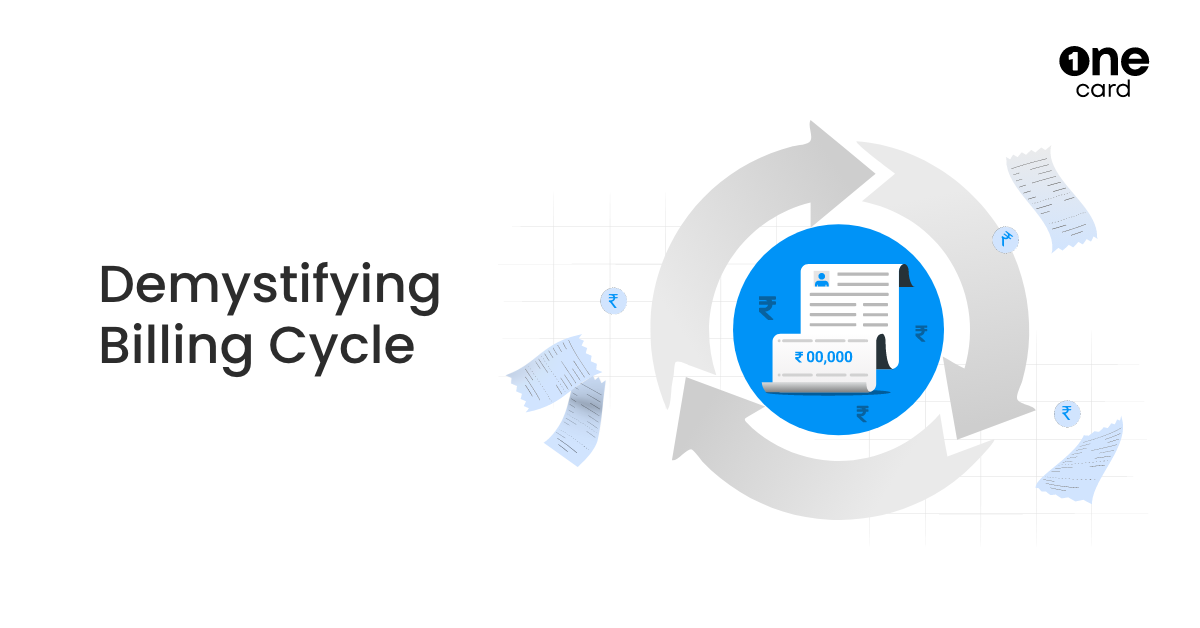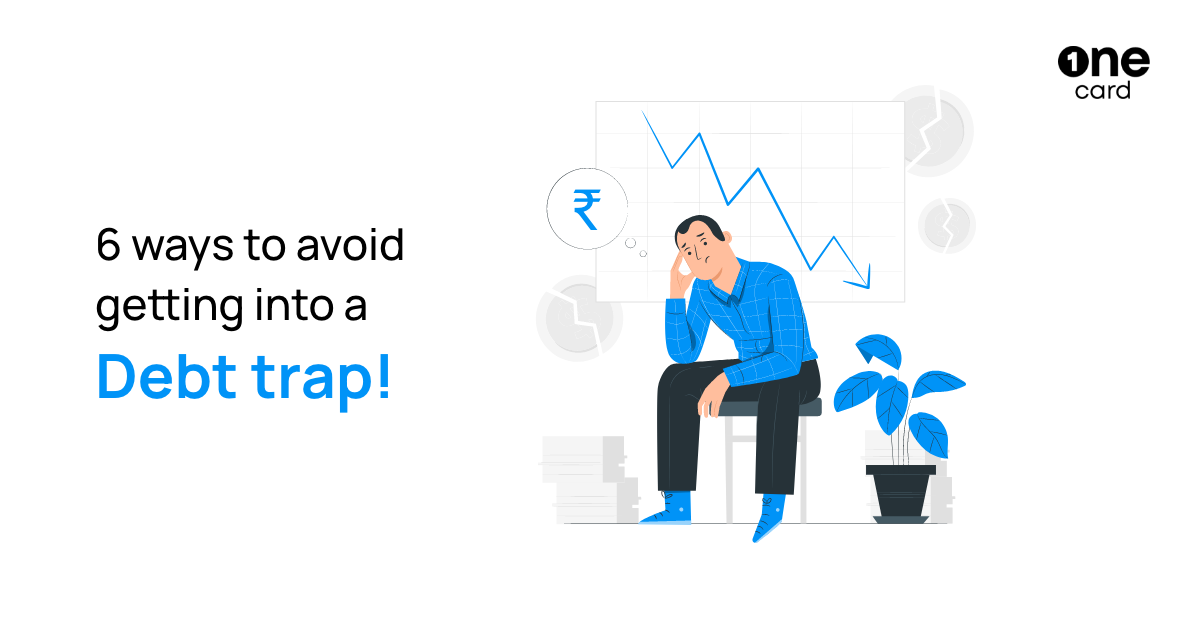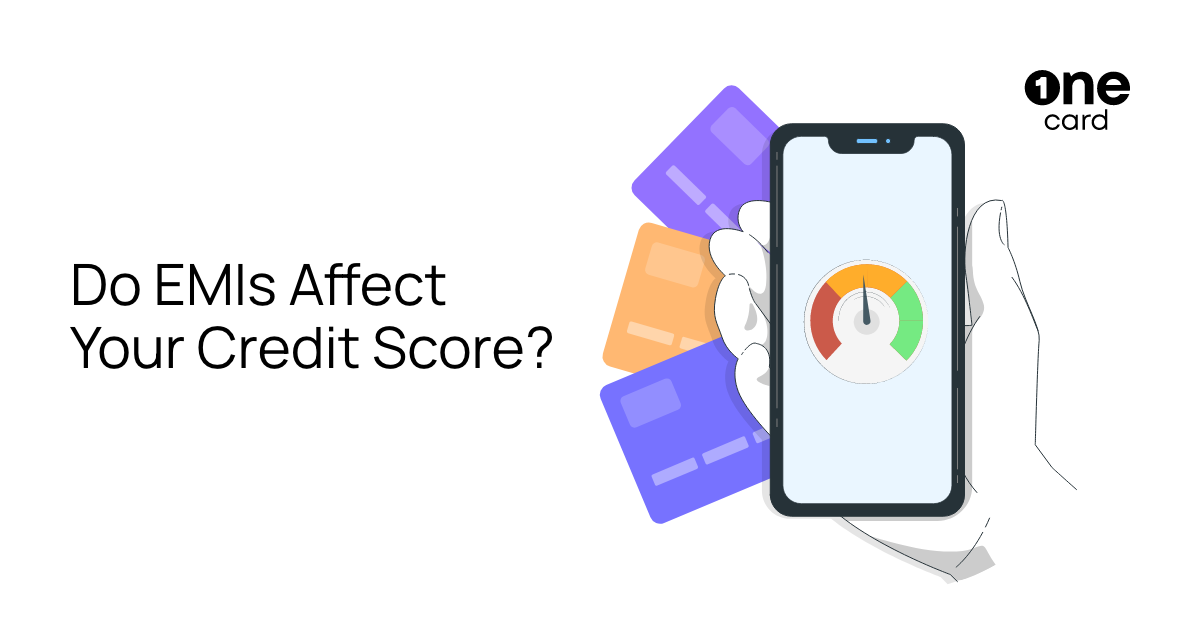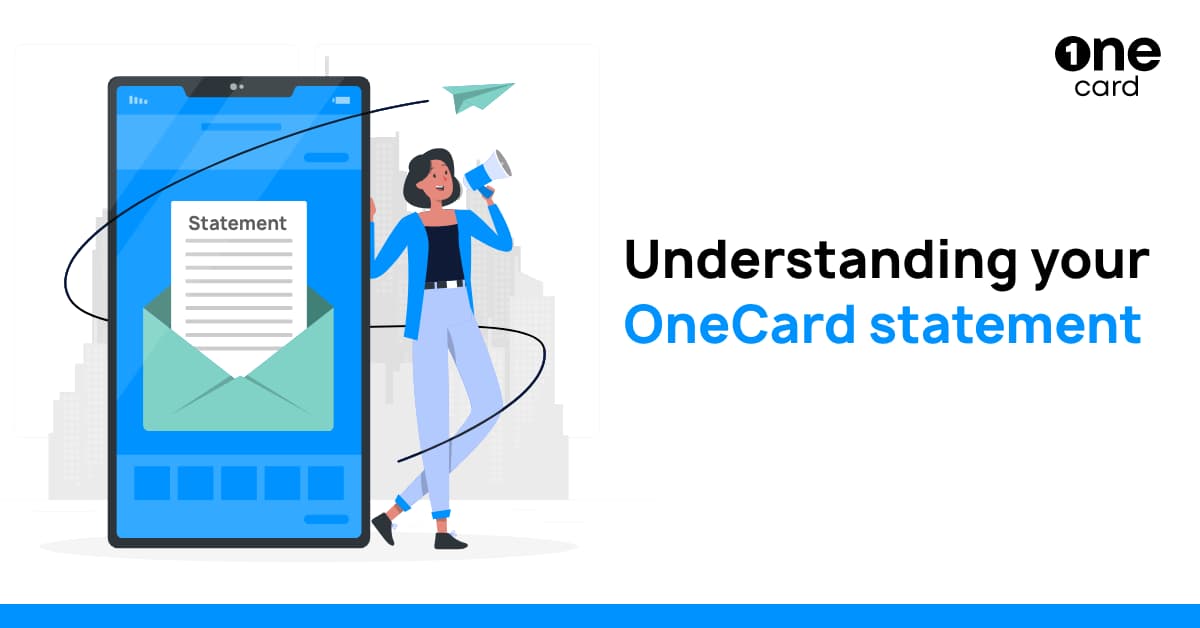What is Credit Card Billing Cycle & How Does It Works?
By OneCard | May 18, 2022

Credit cards are not as complicated as most people think.
It is a card that allows you to purchase items without actually paying for them immediately.Think of it as a type of small loan that you take every month from the bank. If you pay back the full amount in time (usually within 45 days) then there is no interest. But if you cannot pay the full amount by the payment due date, you are charged interest.
So in short, as long as you are clearing your full bill on time, you have nothing to worry about!
Table of contents:
What is Credit Card Billing Cycle?
The first and foremost thing to know before becoming a regular credit card user is knowing your card’s billing cycle. The billing cycle is the foundation on which you can plan your usage. The billing cycle is the period between your last statement generation date to the next. Your bill is generated every month on the same date and hence the billing cycle is 30/31 days.
At the end of every billing cycle, you receive a statement for the month which consists of the details of all your transactions for the month, cash withdrawals, charges associated with transactions, outstanding balance, interest and other charges, etc.
For example, if your statement is generated on 31st December, your billing cycle of December will be from 1st December to 31st December.
Additional Read:- A guide to your OneCard Statement
Credit Card Interest Free Period
All credit cards come with an interest-free period during which a credit card issuer does not charge any interest on the purchases made using the card. It is typically around 15 to 25 days after the bill generation date which is a total of 45 days to 55 days including the billing cycle. During the interest-free period, you need to repay in full to avoid any interest charges on the dues. However, if you cannot pay it off in full you have the option to pay the minimum amount due and carry forward the remaining balance for the next cycle. But in this case, you will incur interest charges. In most cases, you also have the option to convert your balance into easy EMIs, but that will also incur interest charges.
Credit card billing cycle and due date
Once your bill is generated, your credit card issuer or the bank gives you 15-20 days ( subject to their respective policies) to clear your credit card bill. For instance if your bill was generated on 1st December for OneCard, you will need to pay within 18 days. Hence, 18th December becomes the last day to clear your OneCard bill, which is known as the “due date”.
What is Minimum Amount Due and How is it Calculated?
The credit card minimum amount due (MAD) is the minimum payment that a credit card user needs to repay towards their outstanding credit card balance in order to maintain their account in good standing. The MAD is usually a small percentage, typically 5% of the total outstanding balance or a small fixed amount depending on your credit card’s policy. However if there are any EMI purchases made using the credit card, the MAD includes the installments and their corresponding interest charges as well. Thus MAD = A small percentage which is around 5% of the outstanding + EMI/s + taxes, if any.
Is it better to pay in full or the minimum amount?
While there is an option of part payment on your due date, it’s highly recommended that you make the full bill payment. However, if you are facing a cash crunch in a particular month, you can pay only the Minimum Amount Due (MAD) on the due date for that month, but in such a case you will be charged a interest on the remaining amount and any new spends you make on your card till you clear your entire outstanding balance.
Also, paying your credit card bil in full on the due date every month, helps you in building/maintaining a great credit score. Your payment history or your behaviour with respect to timely bill payments is the most important factor that affects your credit score.
So going forward, make sure you check your credit card bill when generated, and try and pay it in full as many months as possible!

**Disclaimer: The information provided in this webpage does not, and is not intended to, constitute any kind of advice; instead, all the information available here is for general informational purposes only. FPL Technologies Private Limited and the author shall not be responsible for any direct/indirect/damages/loss incurred by the reader for making any decision based on the contents and information. Please consult your advisor before making any decision.



Sharing is caring 😉